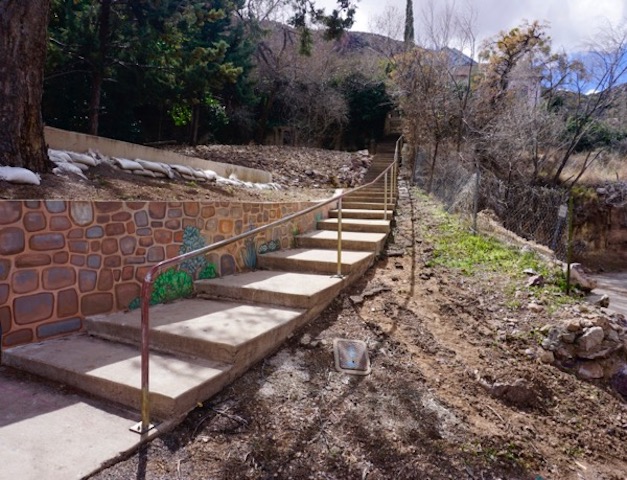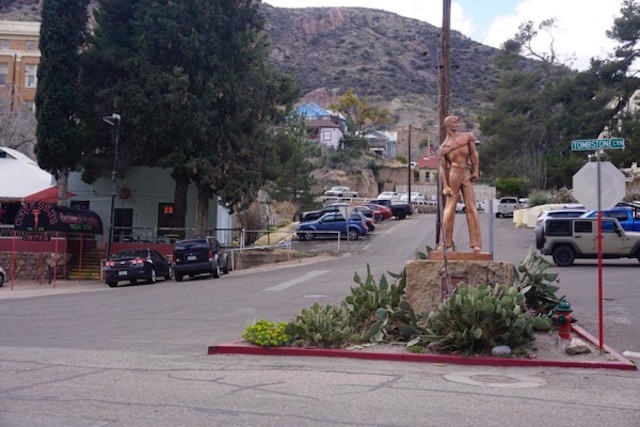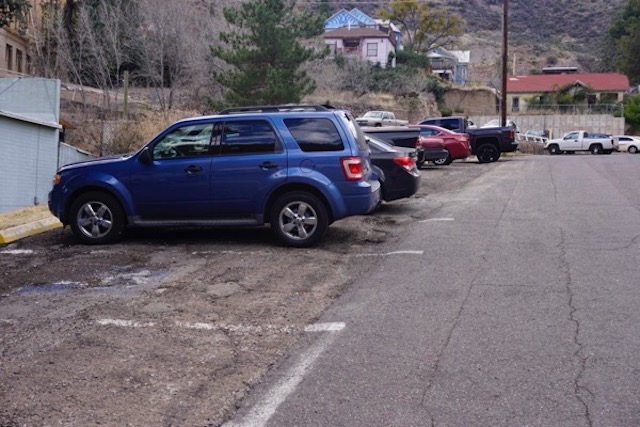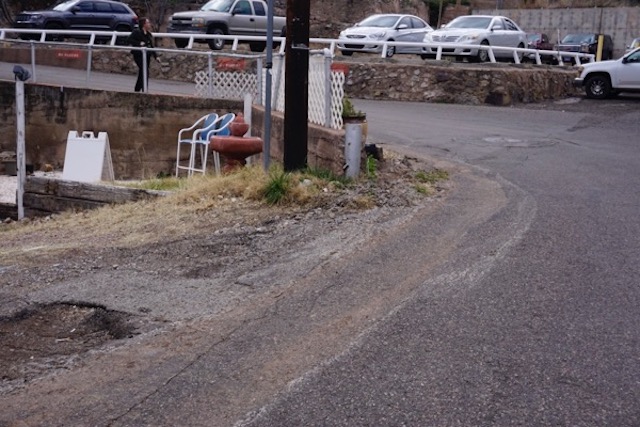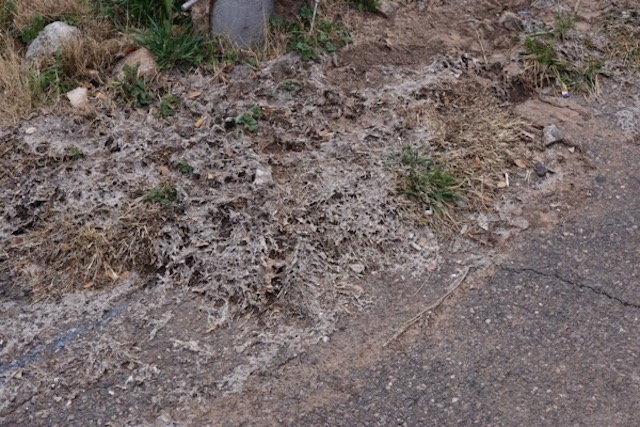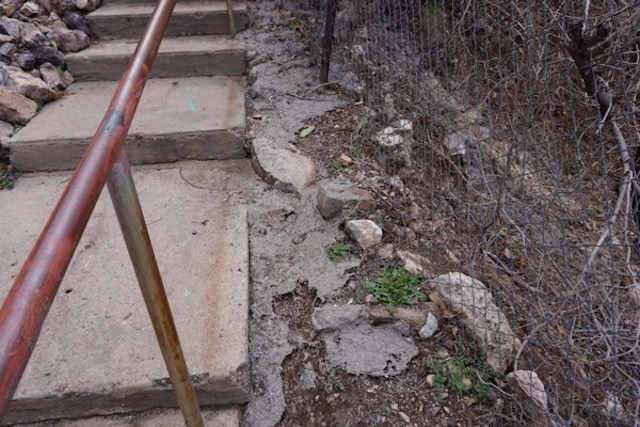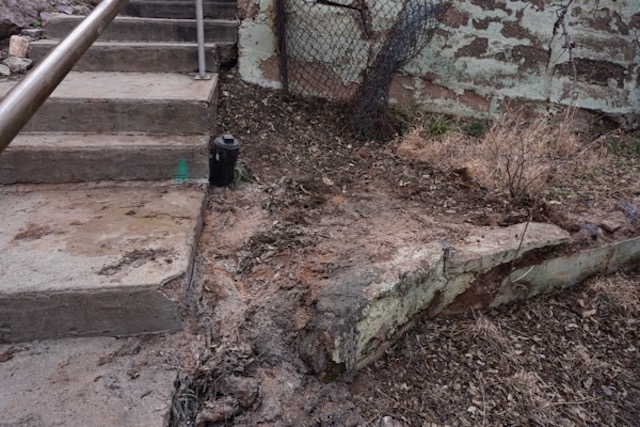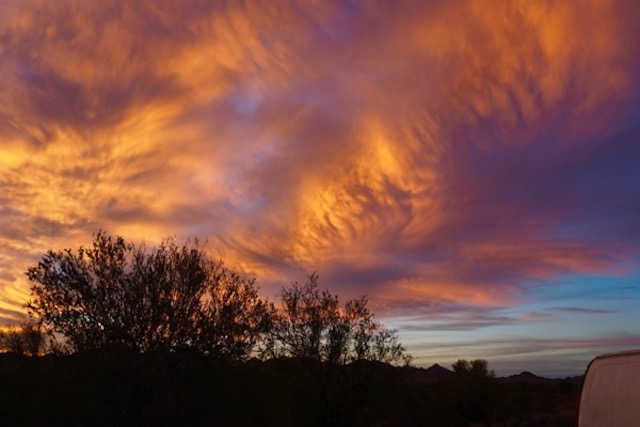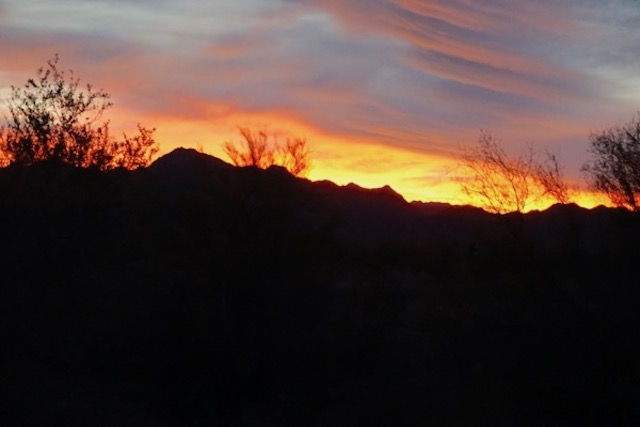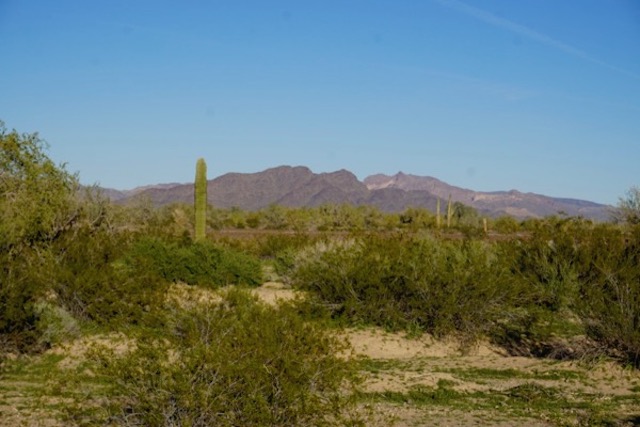City Employee Dumps Raw Sewage In The Streets of Bisbee Arizona
“Anytime you have raw sewage it’s a concern.” — Carrie Langley Director, Cochise County Health and Social Services
Bisbee Arizona is an old copper mining town – Freeport-McMoRan and Phelps Dodge (PD) have been here awhile:
PD has been operating in the Southwest for over a hundred years. Since PD is an Arizona entity that has continually received favors from the Arizona Legislators through the years, there are no financial bonds required or true estimates made of closure costs in Arizona. However, it can be assumed that Sierrita, Bagdad, Verde, Clarkdale closures will approach the $400 million per mine figure, while the larger operations at Morinci and Bisbee could run much higher than Tyrone. It’s is probable that pumping will also have to continue for some 100 years at several of them mines to keep the contaminants in the groundwater from flowing off the site.
Bisbee also has a rich labor history (see the book, “Bisbee ’17”, made into a recent documentary film).
Bisbee today is a gentrifying old hippie town that is heavily dependent on tourism.
A tourism highlight in Bisbee is the ANNUAL BISBEE 1000 – THE GREAT STAIR CLIMB.
Well, we found one stairway – at least the bottom 20 steps – that the participants in the 29th annual Bisbee 1000 might want to avoid (see photos above and below).
That’s the site of a recent illegal discharge of hundreds of gallons of raw sewage. That’s right – raw sewage intentionally dumped onto city streets!
The raw sewage flowed down the edge of the stairs, into the streets, parking lots, and cafe’s, and ultimately into the stream that drains Tombstone Canyon, which flows into Mule Gulch and then into the Whitewater Draw and into Mexico. Mule Gulch is already water quality impaired. The Arizona DEQ recently took enforcement action for violations by the WWTP:
The NOV included failure to monitor chlorine discharges from the outfall, failure to use the proper chlorine monitoring tool, failure to operate and maintain facilities and systems of treatment, failure to meet quality-control standards, exceedance of permit levels for green algae and failure to report non-compliance.
Here’s that incredible story:
I was basking in the sun at a cafe Friday afternoon and noticed a significant rush of water down the street.
Since we’re in the desert and it hadn’t rained heavily recently, I was curious about how that much water could be flowing naturally, so after watching the flow for a few minutes, I walked across the street to trace the source of the flowing water.
As I got near, the awful smell told me that this wasn’t water running down the street, but raw sewage!
I soon got to the source about 100 yards up the hill, where I saw a City of Bisbee Department of Public Works employee operating a pump and discharging what I’d guess was a 50 gallon per minute flow of raw sewage to the street. It had been going on for at least 15 minutes.
I immediately demanded that he stop. He refused.
I then went to the nearby County Office building, which housed the County Prosecutor’s Office. I advised them of a crime in progress, described what was going on, and asked them to call the Sheriff or local police.
They refused to do so and asked me to leave.
Outside, I managed to borrow a phone, which I used to call 911 to report a crime in progress. The 911 operator told me not to worry, that she would call the Department of Public Works.
No, I said, because I didn’t have my camera with me to document what was going on, I wanted to call police and have the police respond and file a police report to document the illegal discharge so I could pursue it with US EPA and Arizona DEQ as environmental crimes.
Reluctantly, the operator agreed and 15 minutes later, local police rolled up.
The responding officer, Sgt. Silva, initially was reluctant and tried to dissuade me from pursuing the matter. The officer claimed that he was not an expert, he lacked jurisdiction, and the worker didn’t know what he was doing.
As I was trying to convince him to observe what was going on, interview the worker, and file a police report, a city water tanker truck rolled up and began hosing the sewage sludge residue down. I told the officer that they were trying to cover up their crime ad that he needed to document the raw sewage.
Sgt. Silva then walked up the hill, saw what was going on, spoke with the worker and returned a few minutes later to advise me that I was “absolutely right”.
He told me that the worker had no supervision, because the Director of Public Works was taking his sick leave before retiring and the City Manager had just resigned before getting fired. He promised to file a police report that I could pick up on Monday 2/18/19.
So, here’s the complaint I filed to US EPA and Arizona DEQ on Monday. I hope they take enforcement action and require Bisbee develop a corrective action program for wastewater infrastructure and train their workers to prevent recurrence:
City Worker Dumps Raw Sewage On Streets of Quality Hill.
At approximately 12 pm on 2/15/19, an employee of the City of Bisbee Arizona’s Department of Public Works intentionally pumped hundreds of gallons of raw domestic sewage onto the street (Quality Hill Road). This was not an accidental release, storm event, or failure of a wastewater pipeline or septic system. The sewage was pumped by a motorized pump. The sewage ran down hill and discharged into a stream that drains the area. Upon my observation of this ongoing discharge (it went on for at least 15 minutes at what I’d estimate was at least 50 gpm), I confronted the employee and demanded that he immediately stop the illegal discharge. He initially refused to do so, but did cease a few minutes later. I then contacted local police, who responded, investigated, and filed a police report. Sgt. W. Silva of Bisbee Police Dept. was on scene to observe the discharge and interview the worker. Shortly after Sgt. Silva arrived, a water tanker truck arrived to wash down the sludge residue. In addition to discharging raw sewage directly to a regulated surface water (water of the US), the discharge of sewage had direct contact with numerous people walking, parking, and dining in nearby Cafe’s. My dog was exposed as well. Raw sewage has high levels of pathogens (viruses and bacteria), nutrients, and possible household chemicals, and therefore the illegal discharge violated applicable water quality standards in the receiving water. A police report will be available on 2/18/19.
John Eyre from Arizona DEQ called me this morning. I asked him about enforcement for illegal discharge and for violations of applicable permit requirements and water quality standards for “waters of the US”.
He seemed less than enthusiastic and suggested that there were complicated facts. We had an interesting discussion.
John told me of longstanding wastewater infrastructure problems and a pre-existing consent order with Bisbee regarding historic and cultural resources that limited what could be done.
When I asked him whether US EPA signed off on that, John mentioned a prior lawsuit settlement agreement between US EPA and ADEQ that applied. Apparently, the impacted water bodies are not regulated “waters of the US”, but are solely under the jurisdiction of ADEQ, not US EPA.
[Update – those claims by Mr. Eyre of AZDEQ appear to contradict a recent NPDES permit issued by AZDEQ to the Bisbee WWTP which authorizes discharges to “waters of the US”. The discharge is to Greenbush Draw, tributary to the San Pedro River, so that may be a different receiving water than the Whitewater Draw. I don’t know the local hydrology and regulatory classifications.]
John asked me for photos. After I shot the photos, I spoke with a bartender in Contessa’s to see if they were aware of the problem. The bartender said she had witnessed the event and that the raw sewage was “flowing like a river”.
Here’s some of the after the fact shots I took today and sent him – notice the stains and sludge that still remain:
